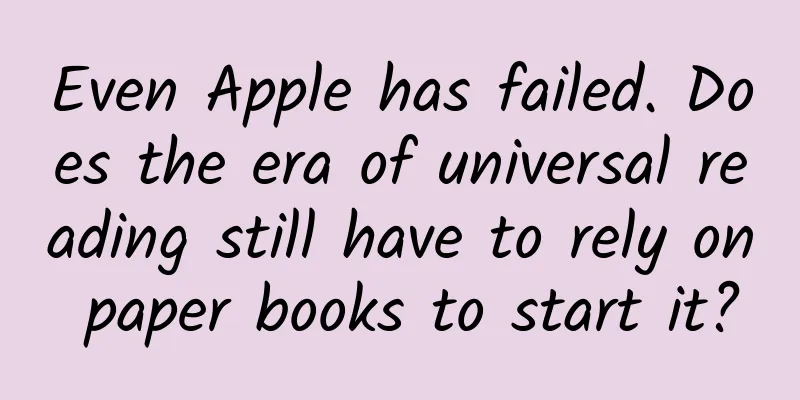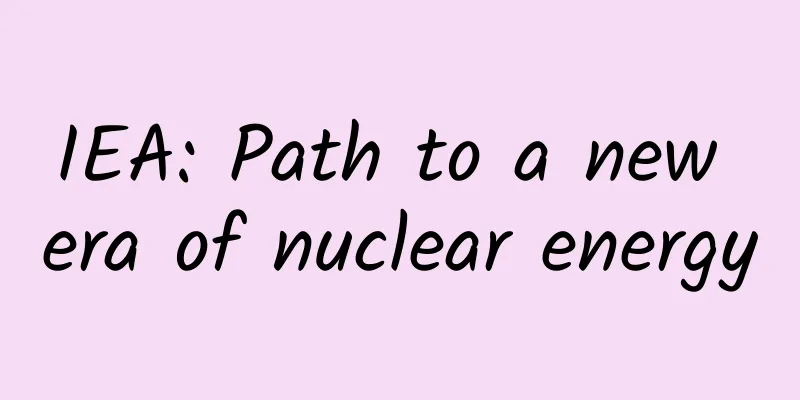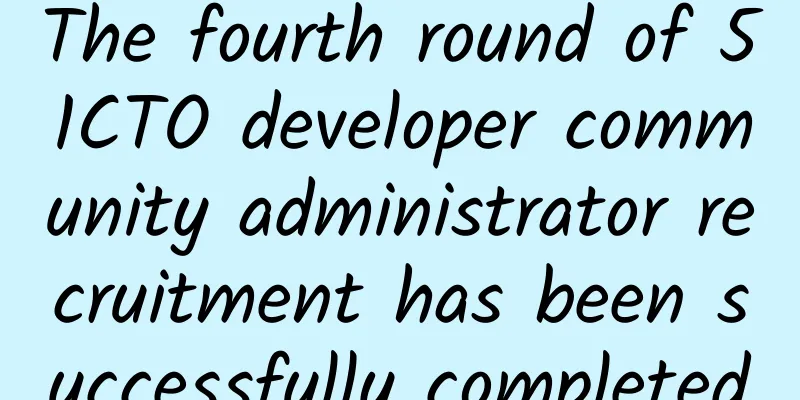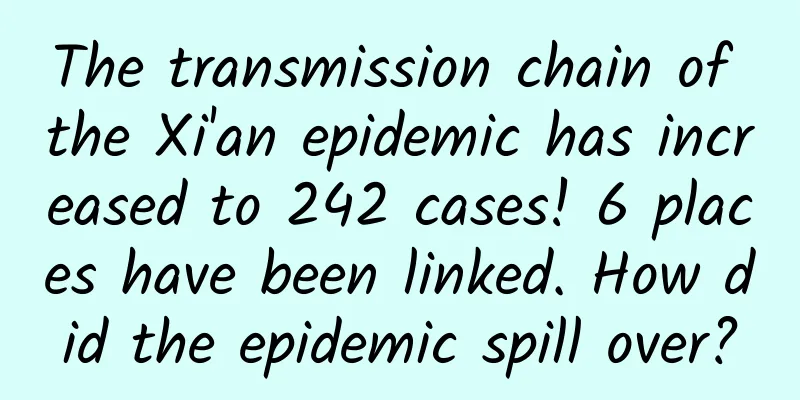Even Apple has failed. Does the era of universal reading still have to rely on paper books to start it?

|
With the development of economy, most Chinese people are no longer limited to the pursuit of material life, and the proportion of spiritual consumption in family expenditure is increasing. Of course, this is inseparable from the correct guidance and vigorous promotion of the government. This year's government work report proposes: to deepen the mass spiritual civilization creation activities, advocate the era of national reading, popularize scientific knowledge, and improve the quality of the people and the level of social civilization. This is the second time that the words “national reading” have appeared in the government work report after 2014 and 2015. The battle between paper books and e-books continues However, people still have different opinions on the interpretation or suggestions of the "national reading" trend, and the debate between e-books and paper books has been brought up again. Simply put, the opinions can basically be divided into two camps: "conservatives" and "radicals". Conservatives believe that the emergence of electronic products such as mobile phones and pads is not conducive to the cultivation of reading habits. Digital reading can easily make people stay at the level of "light reading" and "shallow reading". Classic reading should be the true connotation of national reading. Therefore, the focus of policy promotion should still be on paper books. Member He Xiangjiu said that the feeling of electronic reading is completely different from that of reading paper books, and e-books cannot replace paper books. Radicals believe that digital reading can better match the fast-paced life of modern people and cater to the habit of fragmented reading. Coupled with the advantages of portability and rich content, e-reading has become a general trend. The 12th National Reading Survey shows that the exposure rate of digital reading is 58.1%, which has exceeded paper reading. A mobile reading manufacturer released a report stating that the average annual reading volume of active users of the application in 2015 increased by 50% compared with the previous year, and mobile reading has shown signs of becoming mainstream. Paper books are back, but the digital reading revolution has yet to succeed 2008 and 2009 were the two years with the fastest growth in e-books, during which time global e-book sales soared more than 12 times. Some analysts have predicted that by 2015, e-books will replace print publications. Is this really the case? According to statistics from the American Booksellers Association, the number of global bookstores increased from 1,410 in 1,660 locations five years ago to 1,712 in 2,227 locations in 2015. The 2015 Book Retail Market Report shows that the sales of China's book retail market last year was 64.8 billion, a year-on-year increase of 12.8%. In January, data released by the 2016 National Thousand Physical Bookstore Development Conference showed that the physical bookstore retail market in 2015 continued to grow after achieving a 3.26% increase in 2014, with a year-on-year increase of 0.3%. Meanwhile, according to Forrester Research, only 12 million e-reader devices were sold last year, a sharp drop from 20 million in 2011. In the first five months of last year, e-book sales fell by 10%, and in 2014, digital books only accounted for about 20% of the market share, returning to the situation a few years ago. According to a survey by Nielsen and Harper Collins, compared with 2012, digital reading users fell from 50% to 32% in the first quarter of 2015, and e-book sales in consumer books fell by 16% year-on-year. On the surface, these data seem to support the conservative view. Digital reading has not achieved a disruptive change in the history of human reading as expected by the technology trend. But is this really just because paper books have a better reading experience? Apple's disruption of the e-book market is no longer what it used to be Back then, the rise of the e-book market depended largely on price advantages. Take Amazon as an example. At first, the price of e-books was basically more than half cheaper than that of physical books. In order to gain market share, Amazon adopted a low-price strategy in the early days. For example, a copy of an e-book purchased from a publisher for $14.99 may actually cost only $9.99 to a Kindle user. There is even less free resources in the Chinese market. Readers were happy, but the model of channel dealers setting prices independently inevitably restricted the maximization of publishers' interests. At this time, Apple proposed that publishers could set prices independently. Although this move did not enable Apple to make a breakthrough in the e-book market, it directly led to an increase in e-book prices. Subsequently, Amazon also gave up its right to set prices for e-books. Currently, among the top five fiction books on the New York Times bestseller list, three e-books are priced at more than $12. It is not uncommon for e-books to be more expensive than paper books. In the domestic market, it has long been the norm for distributors to charge for content. Having lost the killer feature of free products or the decisive price advantage, it is natural for consumers to return to the physical book market in the short term. Apple was fined $450 million, but is this really the crux of the matter? The U.S. Department of Justice believes that Apple and publishers' practice has pushed up e-book prices and violated the principle of market competition. This week, the long-running lawsuit finally came to an end. The U.S. Supreme Court rejected Apple's e-book antitrust appeal, which means that Apple must pay $450 million in compensation, of which $400 million will be paid to e-book consumers. Readers can use these refunds to buy new e-books. Michael Kozlowski, editor-in-chief of Good e-Reader, said that due to the refund, the e-book industry will not decline as much this year as it did last year. It seems that the situation has been reversed, but can this really fundamentally alleviate the crisis in the e-book market? Perhaps Apple was wrong from the beginning. In terms of hardware, Apple pursues the ultimate user experience. This also applies to the field of Internet services. It is short-sighted to focus on the distribution of benefits when the market is not yet mature. The Apple model may be a better choice for channel operators and content providers, but if consumers do not buy it, everything will be in vain. As far as e-reading itself is concerned, there are more important issues to be resolved than pricing. For example, the standardization of e-book formats, the fatigue of the eyes caused by mobile phone reading, the delay of page turning in e-readers, the lack of professional reading content, etc. In other words, if Apple can make an e-reader with unprecedented experience, the content pricing will probably not be calculated in this way. If we must pit e-books against paper books, the failure of e-books last year is not so much a result of the indestructible fortress of paper books as it is a result of the internal disarray of the e-book faction. In the long run, digital reading services are more convenient and more environmentally friendly, and their strength should not be underestimated. Broadly speaking, the channels through which people obtain information have entered the paperless era from the paper media era. Books are also unable to escape the impact of this great wave. But for every consumer, it may not be reliable to rely on a certain medium to cultivate or change their reading habits. After all, reading is an attitude. As a winner of Toutiao's Qingyun Plan and Baijiahao's Bai+ Plan, the 2019 Baidu Digital Author of the Year, the Baijiahao's Most Popular Author in the Technology Field, the 2019 Sogou Technology and Culture Author, and the 2021 Baijiahao Quarterly Influential Creator, he has won many awards, including the 2013 Sohu Best Industry Media Person, the 2015 China New Media Entrepreneurship Competition Beijing Third Place, the 2015 Guangmang Experience Award, the 2015 China New Media Entrepreneurship Competition Finals Third Place, and the 2018 Baidu Dynamic Annual Powerful Celebrity. |
<<: Lee Sedol lost to AlphaGo in the first round. Is the artificial intelligence threat theory true?
>>: Apple can beat the FBI, but it may not be able to beat European countries
Recommend
Importance of App Title in ASO Optimization
The title is the most important metadata for user...
Wuwei Classroom Novice Trading Practice Class "Trading Indicators"
Introduction to the resources of "Trading In...
Breathing in liquid, from the deep sea to space
380 million years ago, fish began to crawl onto l...
Humans cannot marry close relatives, but what about animals?
I recently saw an interesting content: "Why ...
A high density of "water pandas" was found in a reservoir in Chun'an! They are older than dinosaurs
Recently, a high density of moon jellyfish was di...
Taobao has only loosened its refund policy, but it has not slowed down the pace of merchants fleeing the platform
Platforms, merchants and consumers have jointly b...
Zu Xiaolai - Medium video project nanny-level practical tutorial, video explanation, violent gameplay demonstration
Zu Xiaolai - Medium video project nanny-level pra...
"April snow" is actually related to gender imbalance? Henan is formulating the first technical guide for prevention and control
In early summer, the catkins of willow trees in Z...
How is WeChat’s “reading count” calculated?
1. Each WeChat ID can contribute 5 readings per da...
Mini Program User Growth Point!
The mobile Internet has entered the stock market,...
Information flow ads are a must-see! 3 material optimization analysis methods can be applied
The impact of advertising materials on advertisin...
Operations = miscellaneous tasks? 90% of operators are going astray!
A few days ago, a colleague from my previous team...
Will taking a nap make you stupid?
Source: A Brief History This article has been aut...
3 misunderstandings and solutions in operating Xiaohongshu!
As content marketing explodes, Xiaohongshu become...
SEM bidding search: What to do if there are too many accounts?
Too much clutter is a big problem that bothers ma...









